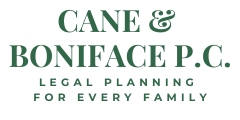What is a revocable living trust?
A revocable living trust is a legal entity that can own and manage your property. Because the trust is a separate legal entity, not flesh and blood, it keeps working when you die, or if you become incapacitated during your lifetime. It can do everything a will can do, and more!
What advantages do revocable living trusts provide?
Everything owned by the trust passes without intervention of the probate court when you die, so your trust can act like a “will substitute” to carry out your wishes. If you own property in more than one state, having title to the property in your trust will avoid probate in multiple jurisdictions, which can be time consuming and expensive (multiple court proceedings and likely multiple attorneys). Additionally, if you become incapacitated during your lifetime, your successor trustees can take care of your affairs without the need to be appointed as your guardian by the court. A trust can also give you more privacy than a will.
During the COVID-19 pandemic the advantages of revocable living trusts shined brightly. Many courts were closed for well over a month and during that time no wills could be probated. This meant that assets in a decedent’s estate were frozen and unavailable to loved ones to pay bills and distribute to beneficiaries, and investment accounts could not be re-allocated during the volatile market and homes could not be sold (even if there was a willing buyer). Until an executor (if there is a will) or an administrator (if there is no will) is appointed, nobody can access those assets. On the other hand, for those who had trusts, since probate is not needed for the assets in the trusts, the trustees could pay bills, sell real property, reallocate investment accounts, and even make some distributions to beneficiaries. Even now with the courts starting to re-open, it will likely take months for an executor or administrator to be appointed, even for the most straightforward estates.
What is “probate”?
When we die, our property passes to the next owner by one of four basic methods:
- by operation of law
- by beneficiary designation
- by your will (or intestacy – state law – if you have no will), or
- by contract.
If you own a house with another person as “joint tenants with right of survivorship” your ownership interest automatically passes by operation of law to that person. If you own a life insurance policy or retirement account such as an IRA, it passes automatically to the person you have chosen by “beneficiary designation”. Ownership of assets can also pass as directed under your will. A revocable living trust is a type of contract between you and a trustee. The property it owns when you die passes according to the terms of the trust without court involvement.
Assets that you own in your name alone or that have no beneficiary designation will have to go through a court procedure. That procedure is called “probate” if you have a will; if you have no will the process is called “administration” and state law will determine who inherits your property.
If I have a revocable living trust, will my estate escape probate?
Yes, but only to the extent that your trust holds legal title to your property. For example, Harold created a revocable trust, and then puts it in a drawer. He never changed the title of any of his assets from his individual name to the name of his trust. When he died, his bank accounts, investment accounts, and his house all still had to go through probate because they were not owned by his trust. Marion, however, did her homework and changed the title on her assets (not retirement or other tax deferred assets!) to the name of her trust. When she died, no probate was necessary. All of her assets passed through her trust or by beneficiary designation.
I thought that if I have a will, my estate will not have to go through probate?
Many people share that misconception! In fact, even if you have a will, your estate must go through probate if you die owning assets in your individual name.
How do I create a revocable living trust?
You and your attorney work together to create a trust agreement tailored to your individual circumstances. Every trust is really a contract between you, as the creator of the trust, and the trustee, who manages the trust for the benefit of the beneficiaries. During your lifetime you will probably fill all three roles: you will be the grantor (the person who creates the trust), the trustee (the person who carries out the purposes of the trust), and the beneficiary (the person who benefits from the trust). You will select back up trustees to take over management of the trust if you no longer can do it yourself, and, of course, upon your death. The trust documents will spell out what you want to have happen while you are alive and what should happen to your assets when you die. The trust must be signed with certain formalities.
What does it mean to “fund the trust”?
Funding the trust means changing the title of assets from your individual name to the name of your trust. When you “fund the trust”, the trust becomes the owner of the assets. For example, suppose you have an account in your own name at XYZ Investment Company. Once you have created your trust, you will fund it by instructing XYZ Investment Company to change the name on your account from your individual name, “John Doe”, to “John Doe, Trustee of the John Doe Trust dated April 1, 2020”. Your goal is to make the trust the owner of nearly all your assets (you will not transfer ownership of your retirement accounts to the trust, as well as certain other assets). For estate tax planning purposes, you may want to discuss making your trust the owner of property which otherwise would pass by operation of law. Only rarely do you want your trust to be the beneficiary of an asset that passes by beneficiary designation. It is vital that you discuss with your attorney what assets do and don’t go into your trust.
If I have a revocable living trust, do I still need a will?
Yes, it is good practice for you to have both. Clients who create revocable living trusts also execute what is commonly called a “pour-over” will. This is a basic will that gives assets unintentionally left behind in your name to your trust when you die. It is a “belt and suspenders” step to make sure your wishes are carried out. Also, if you have young children, guardianship provisions for them will need to be approved by the court through your will. Remember though, for the will to transfer assets in your name into the name of your trust upon your death it will need to be probated.
Suppose I change my mind? Can I change my trust?
Sure, you can! If you are alive and competent you can change your trust at anytime. That is why it is called a “revocable” living trust; an “irrevocable” trust is one that you cannot change. Your attorney will help you with the formalities that you must follow to change your trust.
Who should be the trustee?
Usually you will be your own trustee as long as you are alive and have capacity, although many married couples choose to act as co-trustees of each other’s trusts. An elderly person, someone with poor health, or someone who travels frequently may select a co-trustee to serve with him or her. It is vital to choose trustees who are trustworthy, responsible and detail oriented.
Who should serve as the trustee if I am ill or dead?
Who do you trust? Who is competent and sensible? Who can you count on to put your interests above their own? A trustee doesn’t have to know everything, and, in fact, should be encouraged to seek help and advice from knowledgeable people. A spouse, an adult child, a sibling, another close relative, a trusted friend, a professional advisor like an attorney or accountant, or a corporation might be good choices. Your choice will depend on many factors which you will discuss with your attorney.
Can I remove a trustee if things change?
Yes! You should review your documents regularly to make sure that the choices you made when you created your documents are still the best ones today.
Who gets to say that it is time for me to step down as a trustee?
Obviously, you cannot serve as a trustee once you are gone. It is trickier to say who decides if you should step down while you are alive. Most of our clients choose to give that power to one or more trusted individuals, like their spouse or adult children. We prefer to have this power in the hands of trusted individuals rather than a doctor who may not know you well or may be reluctant to exercise so much power. For example, the document may say that your children, acting unanimously or by the majority, can remove you as a trustee so that the next trustee takes over. They must give you written notice and you will have a chance to object to your removal.
Does a revocable living trust need to file a separate income tax return?
No. You control the trust and the assets are still at your disposal, so it is still considered “yours” and you are taxed on all of the income while you are alive, just as though it would be taxed if the assets were still in your own name. You file your income taxes just as you normally would.
Does a revocable living trust save estate taxes?
The trust format itself is estate tax neutral. You can include smart tax planning language in your trust to take advantage of potential tax savings, just like you can in your will.
Will putting my assets into a revocable living trust make me eligible for Medicaid?
No. Since you are still able to use the assets at your own discretion and can make changes to the trust at any time, simply moving assets into a revocable living trust will not on its own render you eligible for Medicaid.
What kinds of assets can I put in my revocable living trust?
Most things: real estate (this will avoid probate in multiple states if you own real estate in more than one state), investment accounts, bank accounts, notes receivable, stocks and bonds, a car, and tangible personal property like art and jewelry.
Can I put the shares of my co-op in my revocable living trust?
There is no inherent reason why not, although some co-op boards may be reluctant to allow it until they understand that as a shareholder the trust will be obligated to all the cooperative’s rules, including the restrictions on who can occupy the apartment. In fact, it may be an advantage to the co-op to have the ownership of shares pass more smoothly than they would if there were a probate proceeding. You should check with your co-op board to see what their procedures are.
What are the advantages of using a revocable living trust format?
Avoiding probate and having an effective way to manage your assets if you cannot do it yourself are the primary benefits. Court procedures can handle these matters even if you do not have a revocable living trust but having the trust will make it easier and likely less expensive for your loved ones. Death and disability are stressful enough without adding bureaucratic hurdles to the difficulties!
What are the disadvantages of using a revocable living trust format?
It costs a bit more to create a trust than a will, and it won’t be effective unless you fund it. You will have to do some homework! But in the end, using a revocable living trust as the cornerstone of your estate plan typically saves your beneficiaries time and money. Not only will settling your estate typically take less time, if probate is not necessary, they will save court fees and considerable attorney fees. During a volatile stock market, your trustees can reallocate your investments and protect your estate against losses.
Are there times when a revocable living trust is not the best format for an estate plan?
Yes. Here are a few of them: all of your assets will pass by beneficiary designation or operation of law as you desire and with smart tax results; you know you will never bother to fund the trust; having a lower cost plan is your highest priority at the moment. While a living trust may make sense for some clients, there are situations where it doesn’t offer significant benefits—each case is unique! A revocable living trust is not a one-size-fits-all plan.
Are there situations where a revocable trust is especially useful?
Yes. Here are just a few of them:
- you are getting older and/or your health is failing and you want someone you trust to be able to step in and manage your affairs if you are no longer able to
- you own property in more than one state and want to avoid multiple probate proceedings
- you are single and have no children, in which case probate requires your closest living relatives to waive their right to contest your will
- you suspect family members may be unhappy with how you plan to distribute your estate and will contest your will or refuse to sign waivers
- you are not married to your life partner and want to ensure your blood-relatives do not interfere with your plan
- you want your assets to be able to be traded, used or distributed quickly after your death, rather than be frozen until the court appoints an executor
- you want to have your affairs be as private as possible (probate is a public process and your will can be viewed by anyone)
- you are divorced and want assets protected for your young children without your ex-spouse being involved
- you want to reduce or eliminate the administrative burdens on your family when you die
- you plan to leave assets in long term trust for your beneficiaries. Trusts created under your will require the court to formally appoint trustees, which means as trustees need to change over time court involvement is needed each time. Trusts created for your beneficiaries through your revocable living trust do not require court involvement, so trustees can easily resign or be removed and replaced.
Speak with an attorney about your own situation. A good attorney will clearly explain to you why a trust might make good sense for your situation.
How do I decide what is best for me?
Meet with an experienced attorney whose primary practice focuses on estate planning to analyze your particular situation and determine what is best for you.

Courtney E. Boniface, Attorney at Law at Cane & Boniface P.C., is admitted to practice in New York, New Jersey, and Connecticut. She helps individuals and families in the New York tri-state area efficiently plan and settle their estates.
This information is intended for informational purposes only and does not constitute legal or tax advice and does not constitute an attorney-client relationship. This is not intended to be used by any taxpayer for the purpose of evading taxes or penalties. Consult competent advisors regarding your specific situation and goals. Go to www.caneboniface.com for more ideas.
© 2023, Cane & Boniface P.C. This is attorney advertising.


